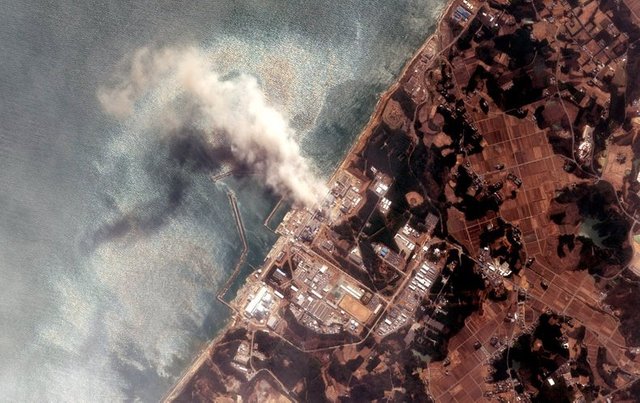Radioactive Glass Beads May Tell the Terrible Tale of How the Fukushima Meltdown Unfolded - Scientific American

It was initially thought all the radioactive cesium released in the Fukushima plumes was in a water-soluble form, and would disperse more or less evenly throughout the environment. But when aerosol specialist Yasuhito Igarashi, then of the University of Tsukuba, and his colleagues examined an air filter from the Meteorological Research Institute in Tsukuba, 170 kilometers southwest of Fukushima, they noticed the filter contained radioactive hotspots. Using specialized imaging techniques they detected high concentrations of radioactive cesium as well as bits of iron and zinc, packed into particles just a couple of microns in diameter (about the size of the average Escherichia coli bacterium). Subsequent studies noted these bits were encapsulated in silica, giving them a glassy texture. Particles found within a few kilometers of the power plant also contained nanosize pieces of uranium dioxide, the nuclear fuel used in the plant.
Source of shared Link

It is a terrible situation in Fukushima. Most people do not even realize that there is still radioactive waste leaking into the environment every day there. For some reason we do not see news coverage of this situation. I guess there is nothing to see here so just move along. Situations like this really makes me sad. Thank you for bringing up the topic so that we all remember.
It is amazing that it has been essentially swept under the rug. Or at least there has been major attempts to do so. They are going through big troubles in trying to even view the melted down material due to the radiation levels. Nuclear technology is massively beneficial for humanity but we have to be a LOT smarter about our locations for the reactors. Putting them in seismic zones seems to be the height of ignorance and stupidity. Though that didn't help Chernobyl...